
Perhaps the biggest casting story here was the return to DC of soprano Ewa Plonka as Lady Macbeth after her WNO debut in the title role of last spring’s sold-out run of Puccini’s Turandot.
Unfortunately, this proved the less successful of the two outings. The first bars of Plonka’s letter scene and vigorous attack on “Vieni t’affretta” promised excitement ahead, with flourishes above the staff recalling that same bright, sharp-edged top that made for a successful Turandot. But that advantage turned out to be a lonely argument for Plonka’s Lady Macbeth.
In that first aria and many of the subsequent scenes, Plonka’s middle voice felt underpowered and indistinct, making it difficult to bring character and dimension to the substantial portion of the role that lives in that region. The coloratura material that is a special hallmark of his role could be serviceable at times, as in the cabaletta to “Vieni t’affretta,” but too often Plonka seemed to be pulled along by the orchestra rather than driving the music in more florid passages. Choppy phrasing in moments like “La luce langue” tended to break up and sap emotional direction from Verdi’s long lines.
Dramatically this was a fairly basic portrayal, with plenty of devious mugging but little impactful engagement with the character. Finally in Act IV, the mad scene imperatives of “Una macchia è qui tuttora” seemed to give Plonka permission to go bigger, and a heftier chest sound and some colorful vocal touches made this the most successful of the character’s big moments. But overall, despite moments of vocal brilliance, this felt like a cautious approach to a role that begs singers to take risks.
Plonka’s limitations increased the pressure on her Macbeth to fully convey the principals’ desperate descent. Thankfully, she had such a co-star in French Canadian singer Étienne Dupuis, making his WNO debut here. (Met audiences may recall his Rodrigue in the French Don Carlos.) Dupuis’s middleweight baritone has a comfortable pliability and attractive tone that well-serves his attention to character and text. Here he frequently pushed that sound into swaggering fortes that punctuated Macbeth’s expressions of fury or horror, though he could also push too far at times, letting the voice become unruly and pitchless.
Ably depicting an initially imperious but conflicted Macbeth that unravels and coarsens in his pursuit of power, Dupuis effectively carried set pieces like Macbeth’s crack-up in the banquet scene, though his duets with Lady Macbeth remained somewhat inert. His Act IV highlights began with a tender “Pietà, rispetto, amore,” revealing a more lyrical side of Dupuis’s voice just this once, in the sole glimpse we get of Macbeth not tinged by fear or ambition.
This Act IV also included “Mal per me che m’affidai,” restoring the death scene aria for Macbeth that was included in the original 1847 score but was cut from the 1865 revised version in which Macbeth dies offstage. (That is the version that otherwise serves as the basis for this production.) Dupuis’s bleak and chilling rendition made a strong case for the character getting a debased onstage death while moaning about his “vile crown,” though the added punch of this moment made the extended happy coronation material for Malcolm and choral paean to victory from the later edition feel especially superfluous.
Frequent WNO contributor Soloman Howard’s instantly recognizable voice is always an event onstage, pairing bottomless depths of sound with intense delivery, and he did much to highlight this production’s Banquo, including a moving “Come dal ciel precipita.” Kang Wang, who has appeared at WNO as Rodolfo and Ferrando in recent years, also made a strong impression as MacDuff, his abundant tenor easily filling the hall in “Ah, la paterna mano.” Sheer volume aside, the voice has a focused heartiness and urgency well suited to Verdi’s heroes. Less successful were some of the subtler vocal effects Wang sought to deploy here, which appeared to still be works in progress.
WNO Principal Conductor Evan Rogister approached the score with an emphasis on clarity and entertainment, Verdi’s colorful and shocking details coming through in high relief, abetted by a committed performance from the WNO Orchestra. Tight coordination of the larger ensemble and chorus scenes made for precise and rewarding listening, though a few opening night foibles turned up in smaller ensembles. The contributions of the WNO chorus, prepared by Steven Gathman, were a highlight of the evening, from pungent articulation in the witches’ choruses to an expertly handled slow burn crescendo in the Act IV opening chorus lamenting Macbeth’s war.
The production, directed by Brenna Corner, began with a projection of a Shakespeare quote in the style of a title card from a gothic horror film of early Hollywood, the lurid strains of the prelude providing an uncannily appropriate soundtrack for a genre and art form more than a half century in the future. Macbeth seen through the lens of 20th century expressionism is an intriguing connection, and the ensuing production hinted at that idea to some degree, in the garish horror take on the witches’ chorus, the staging of the banquet scene, and the abstract black and white castle (sets by Erhard Rom).
Ultimately, however, there weren’t quite enough consistent choices in the direction of that aesthetic vision to impose a strong point of view, and we got a Macbeth that was engaging and functional but a bit scattered. See for instance, the costuming, which does a routine updating of the action to the 19th century. (Costumes are credited as a co-production between Lyric Opera and Canadian Opera Company, perhaps from the Macbethproduction those companies just shared that looked like a much more deliberate period piece, with additional costumes by Kathleen Geldard.) These worked well enough on their own (save for one unfortunate plum house gown with tartan accents visited upon Plonka in her first scene) but seemed like a default rather than a choice advancing any larger vision.
Photos: Scott Suchman

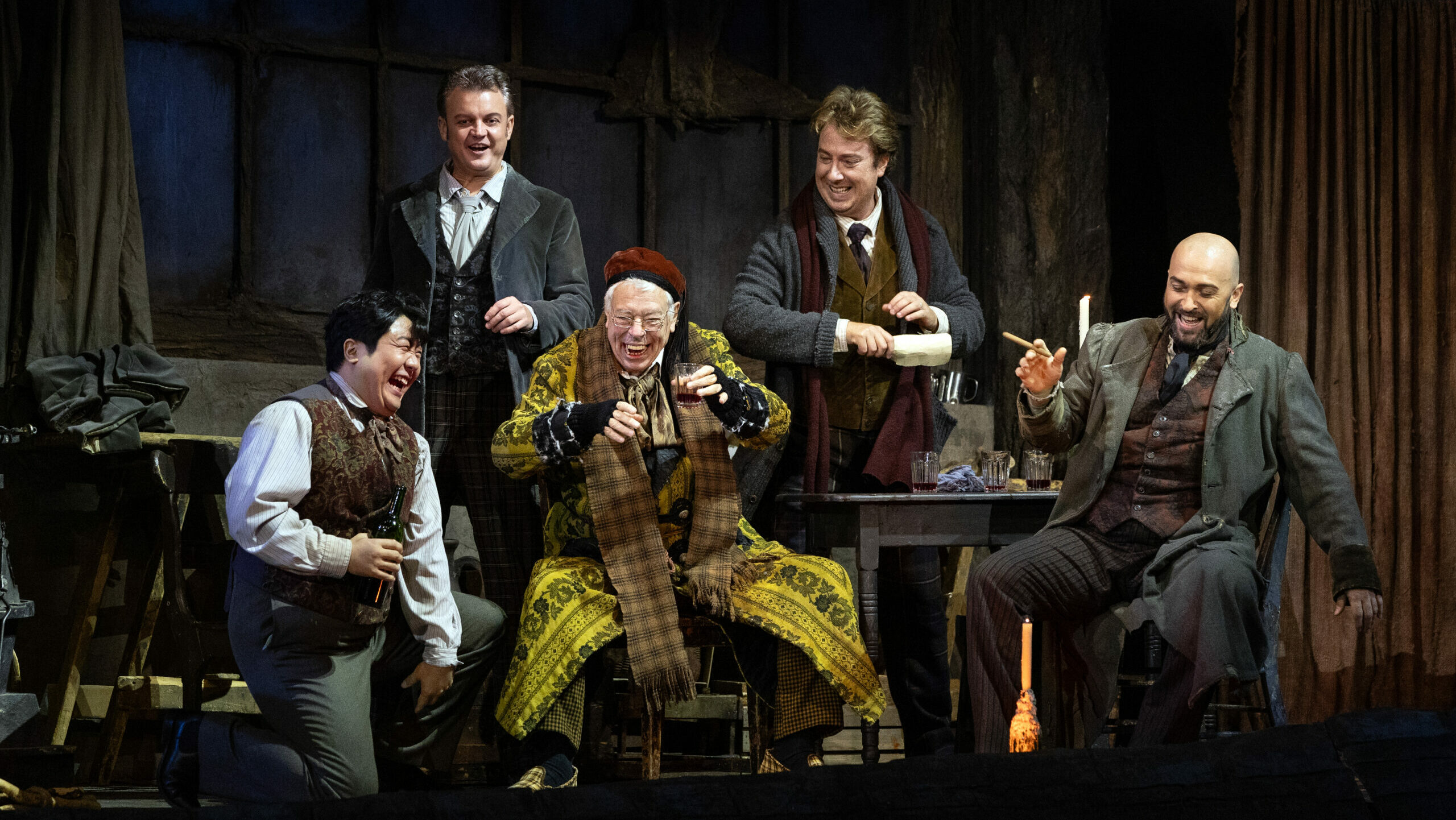
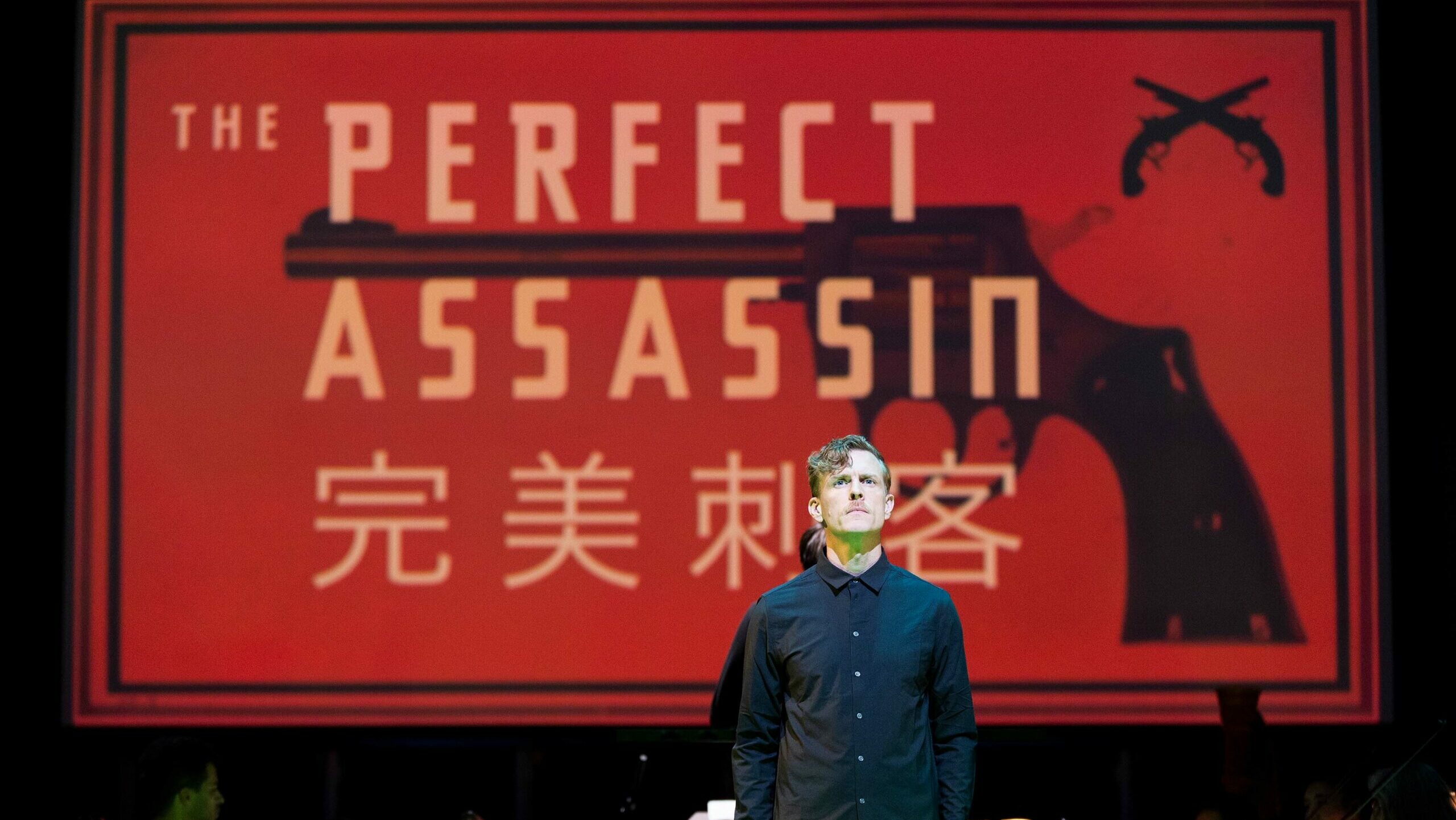
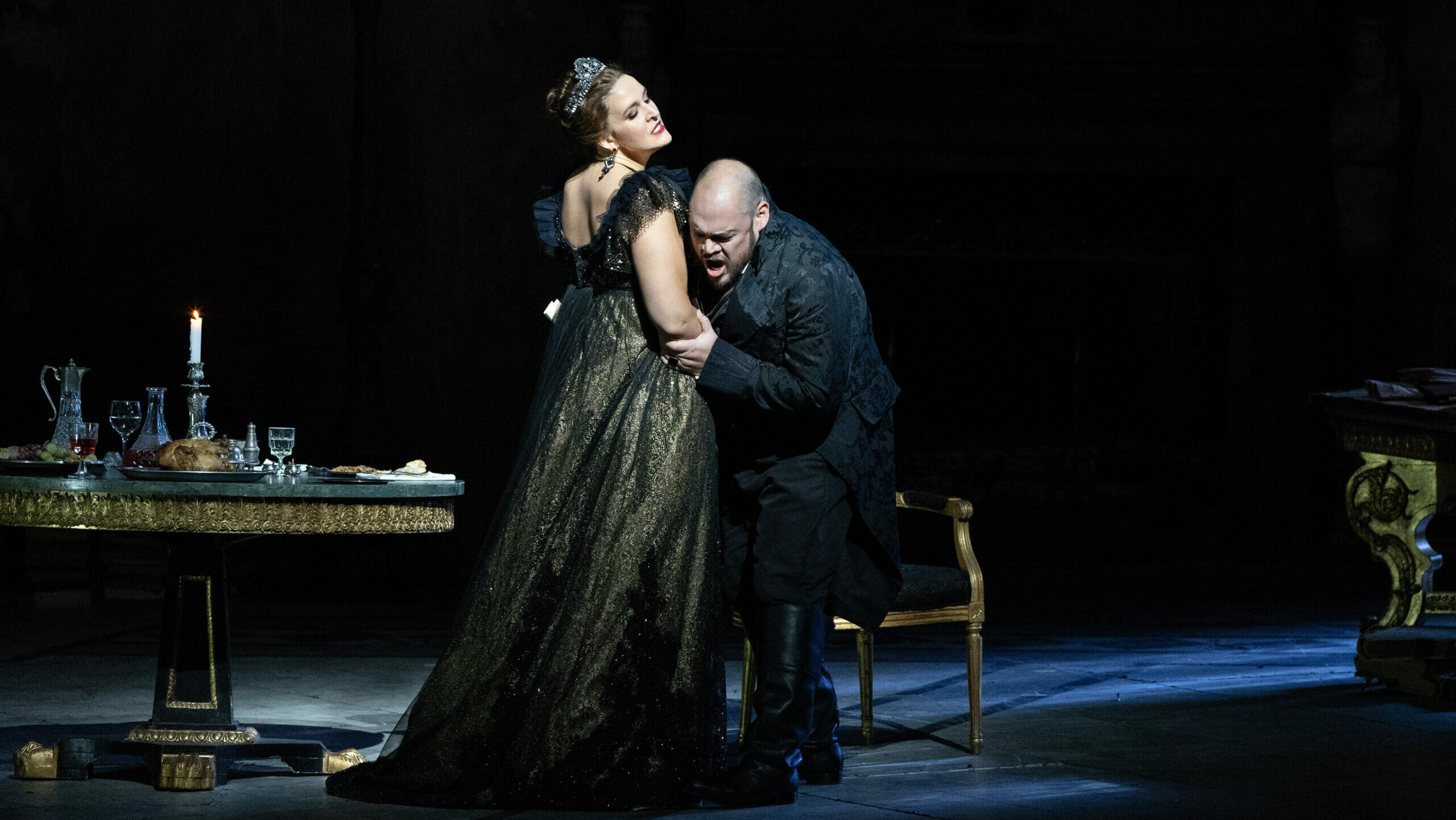


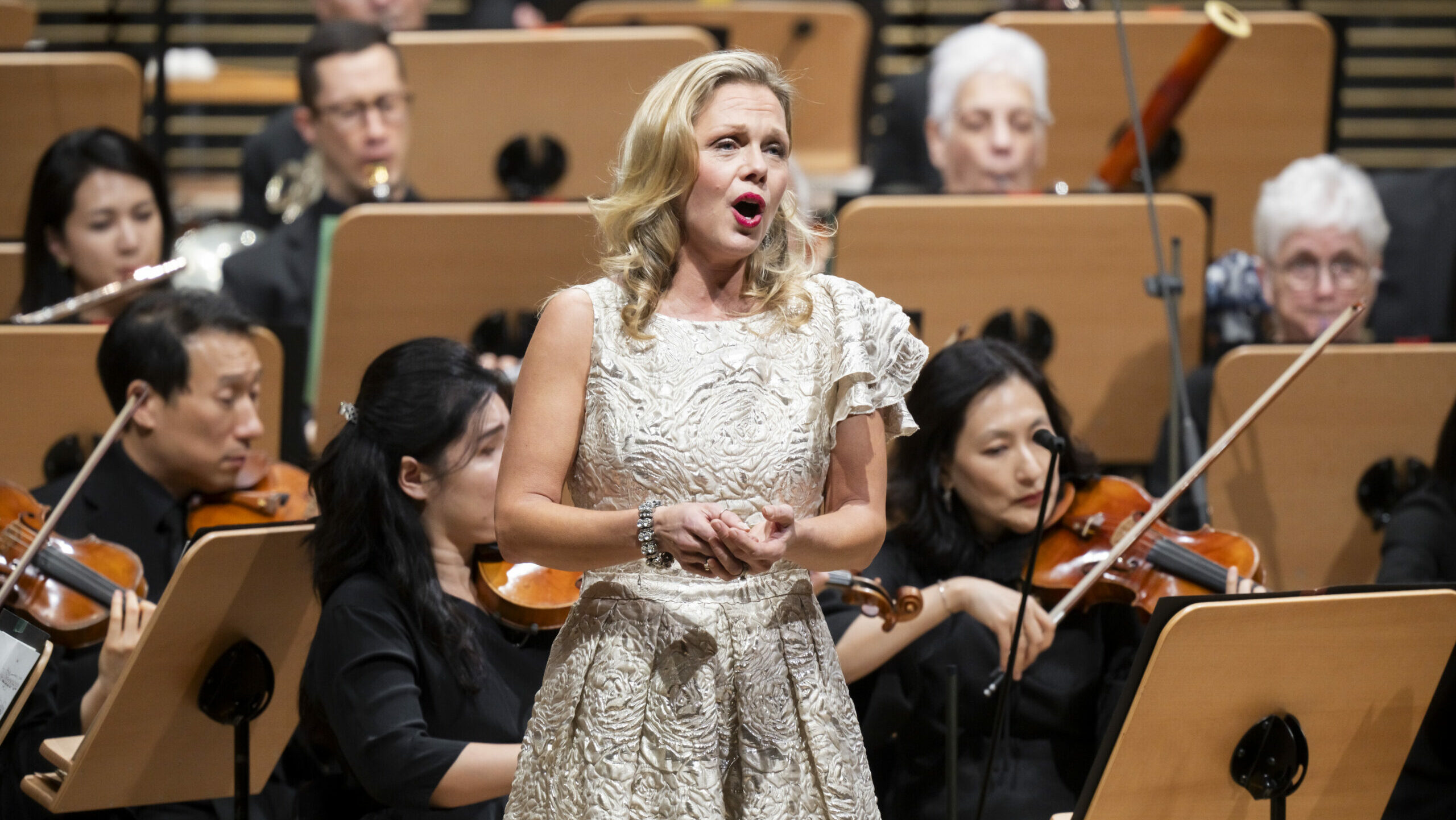
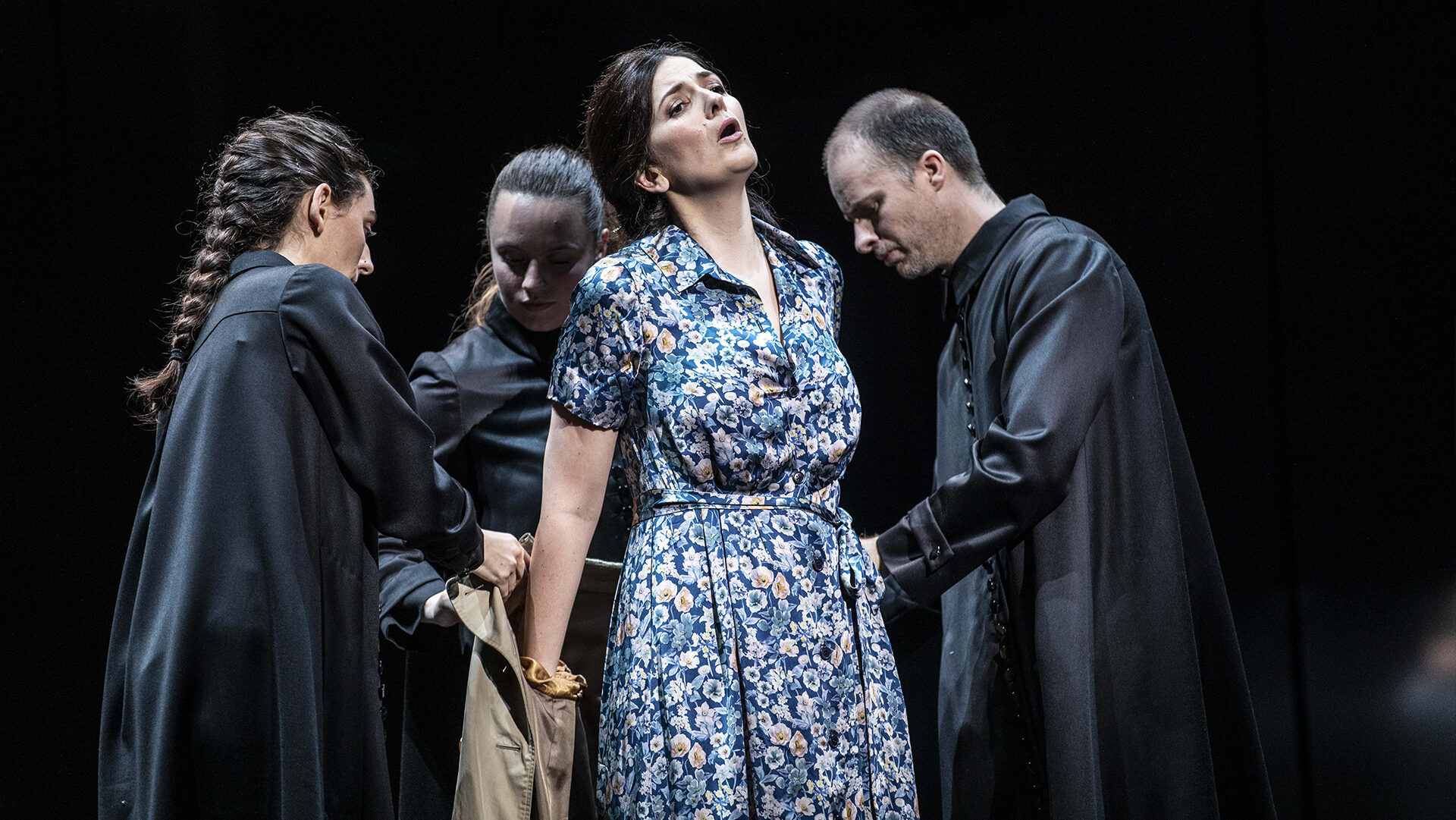
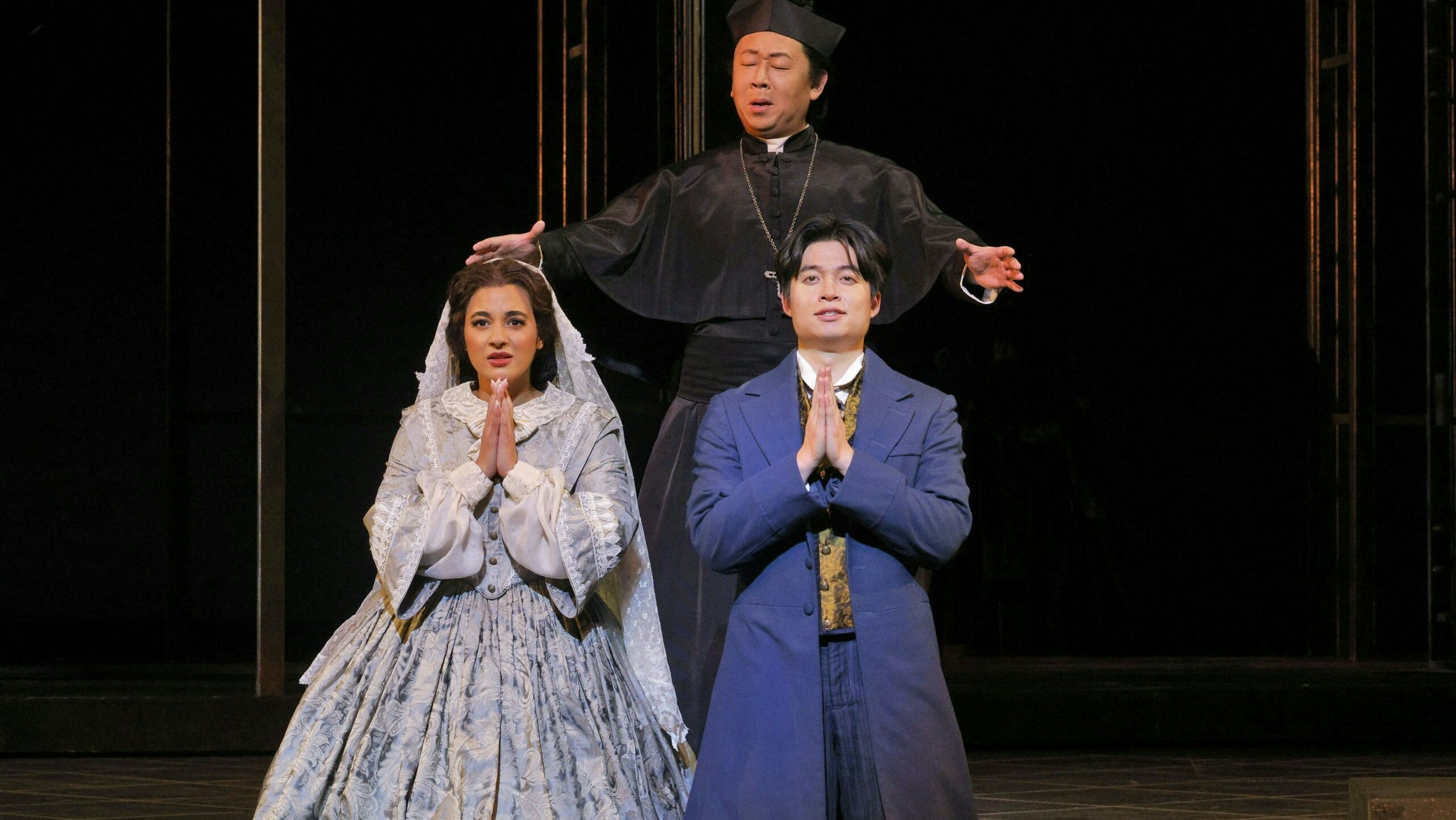
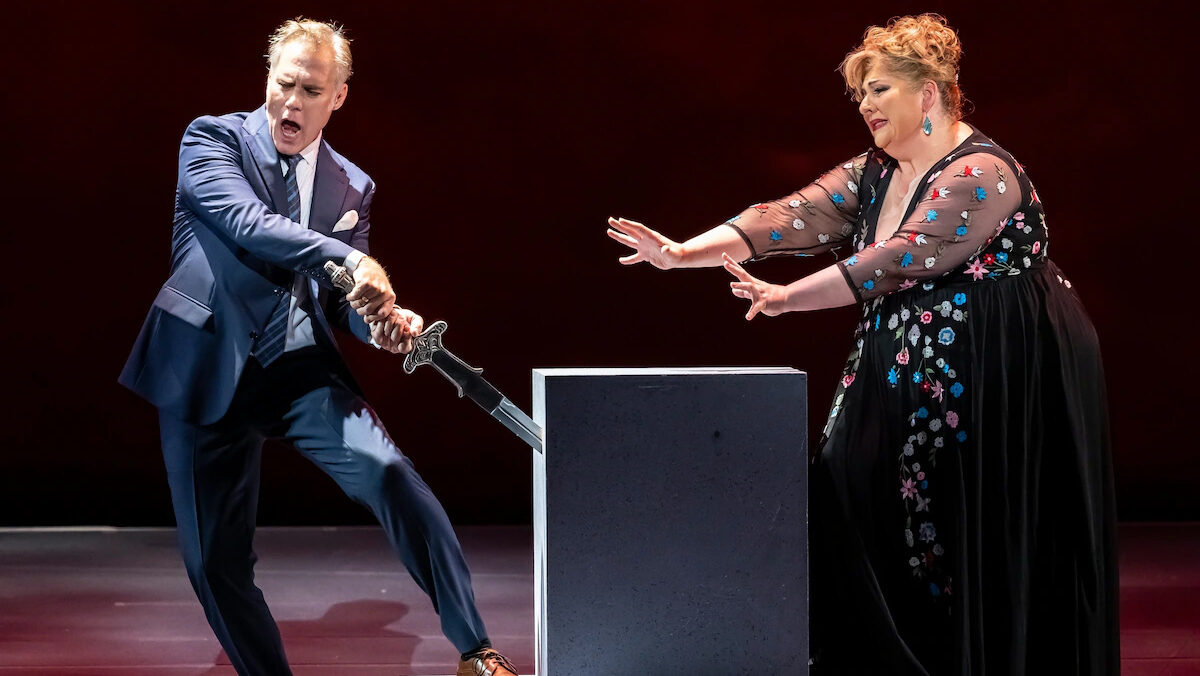
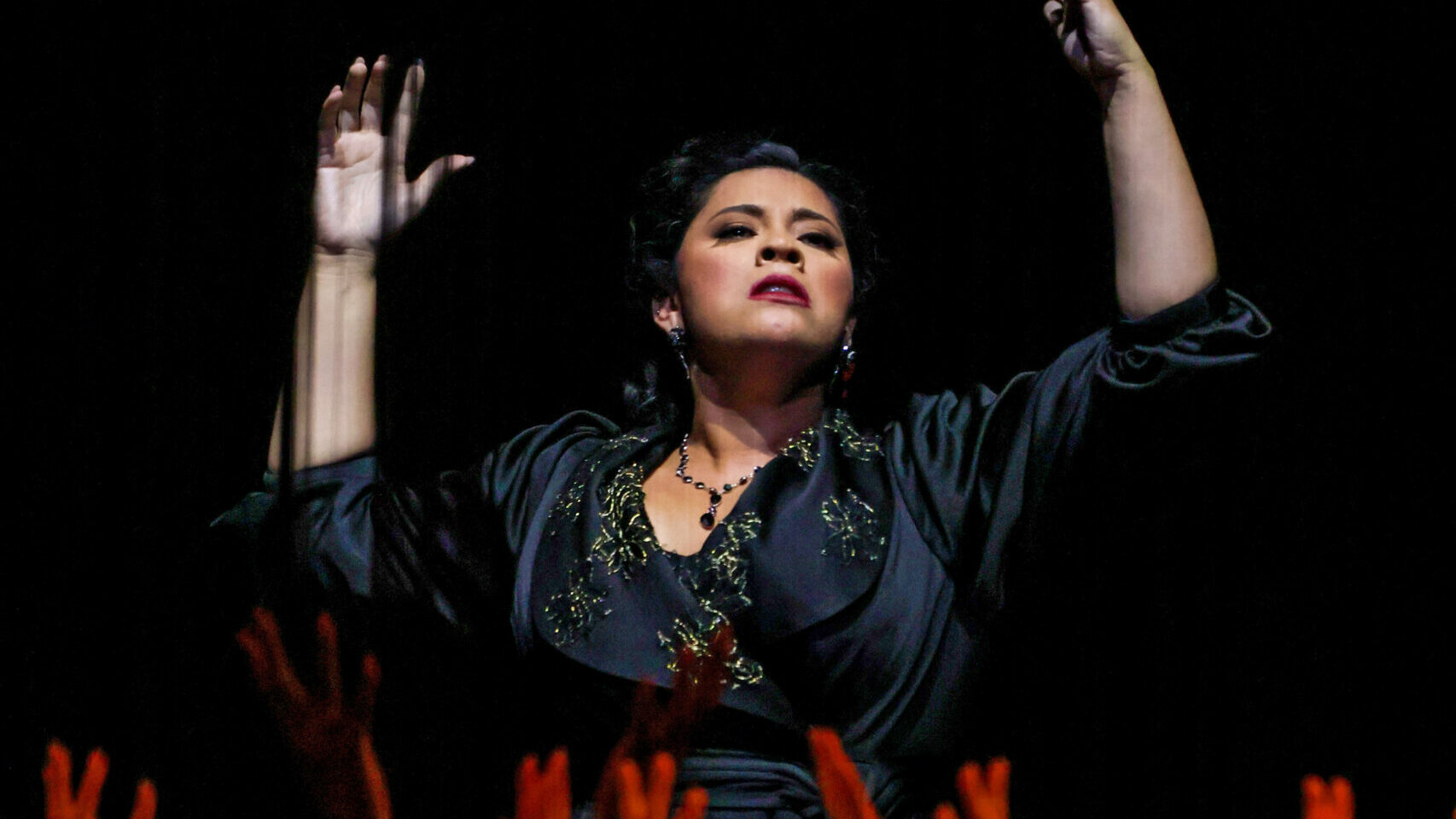
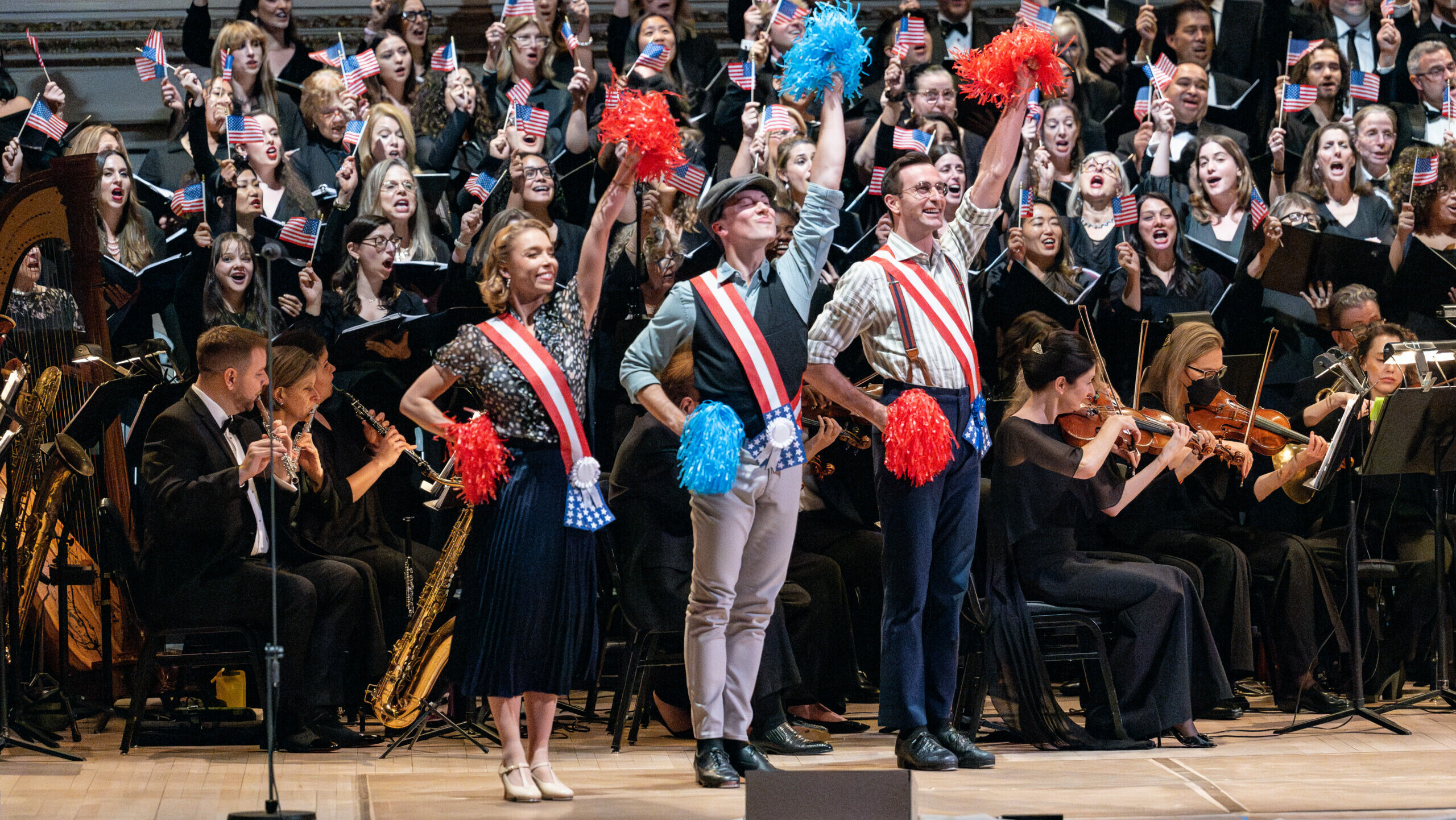
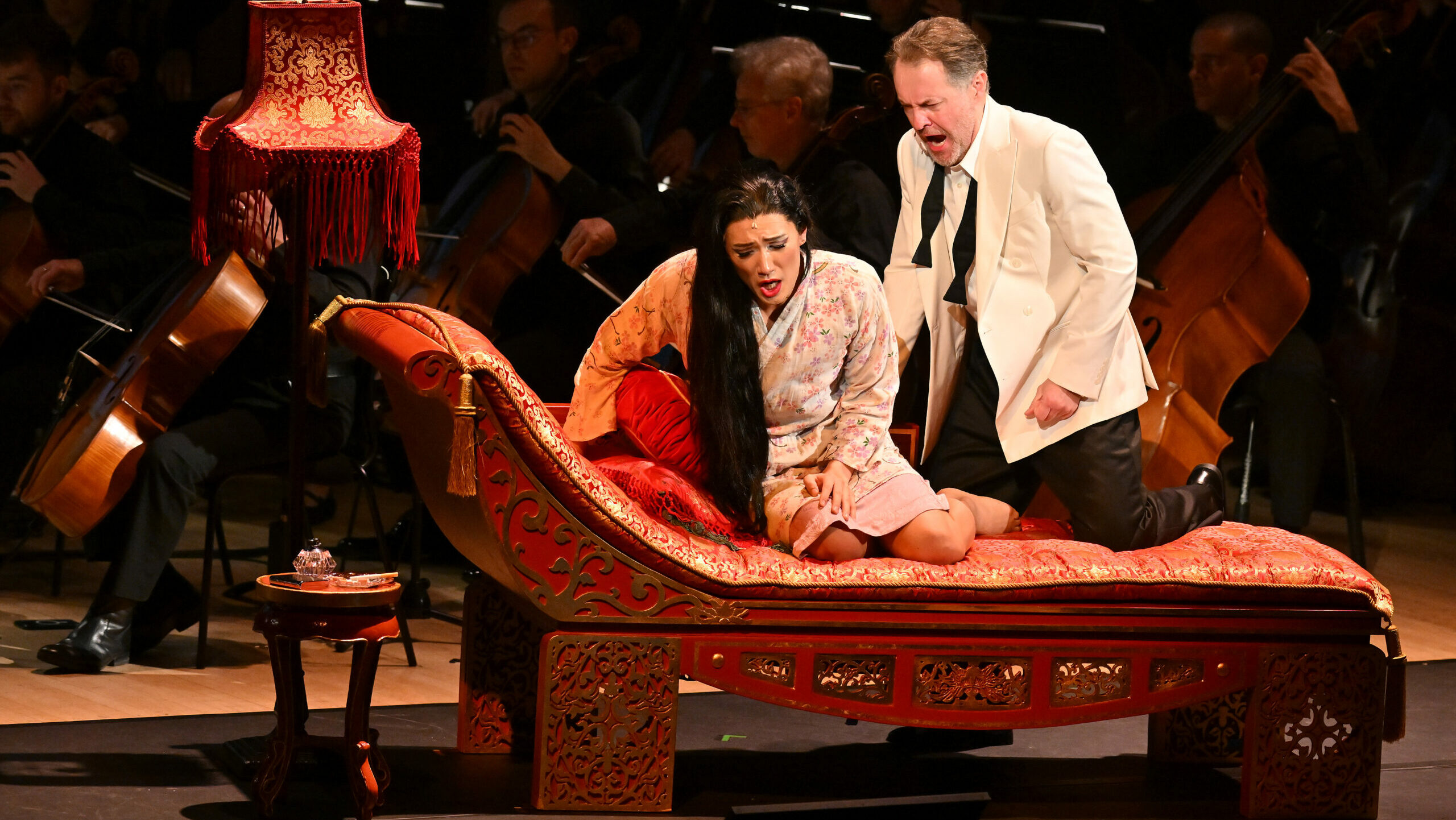
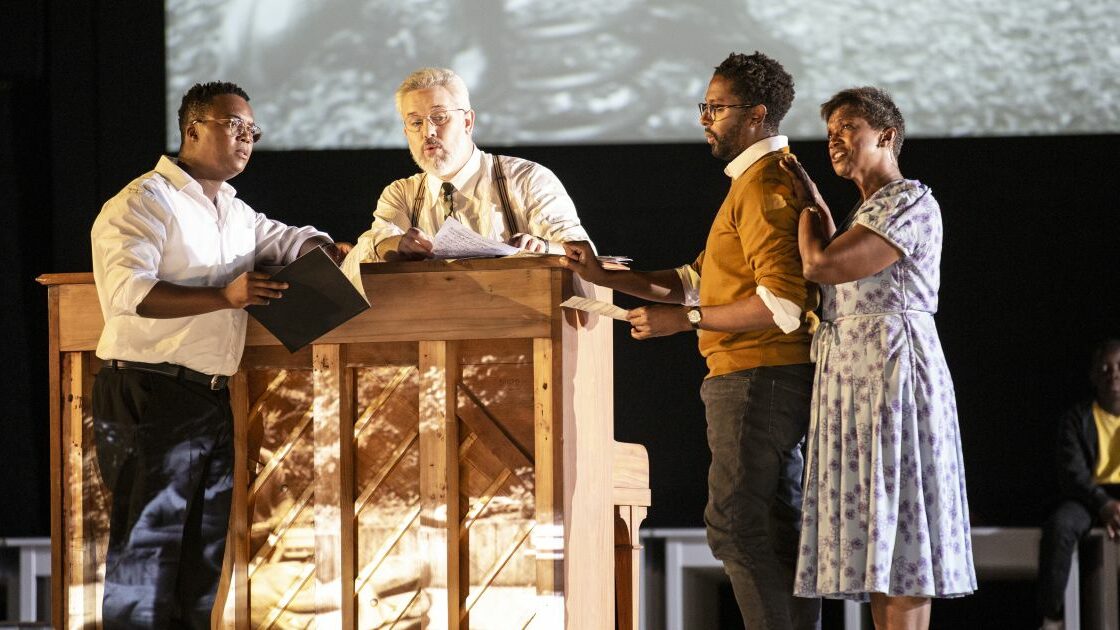
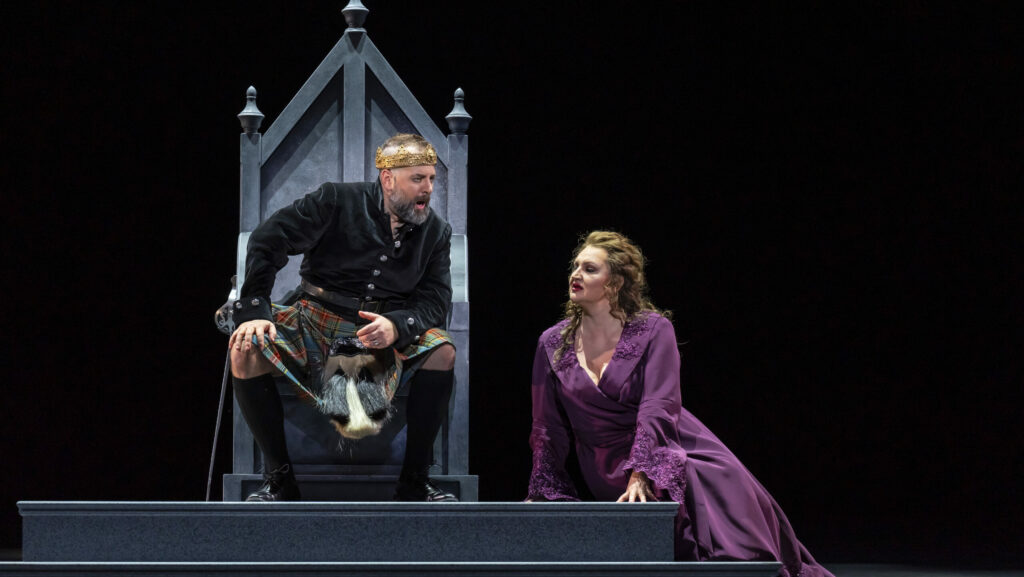
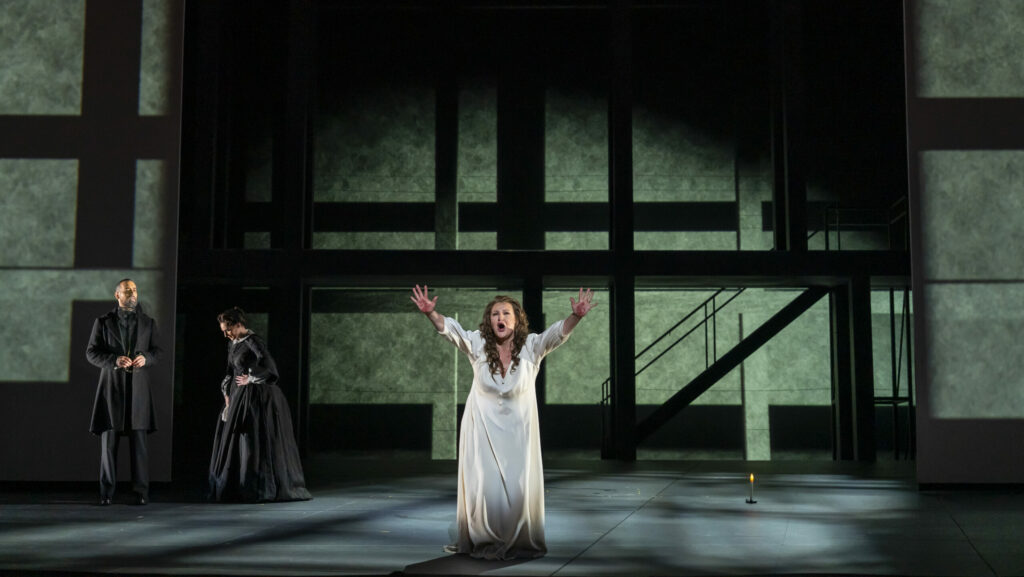
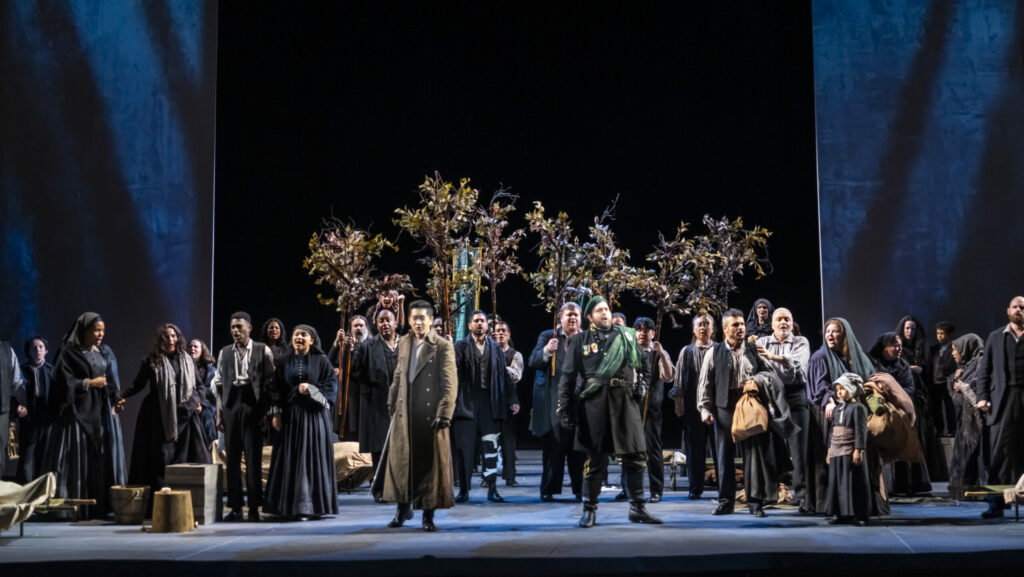
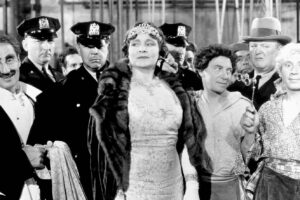
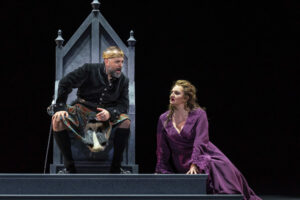
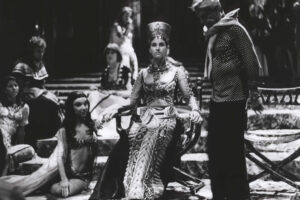
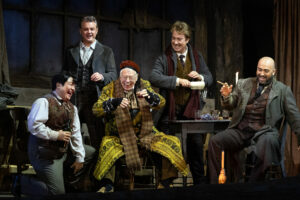

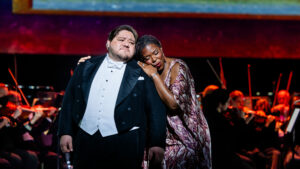




Comments